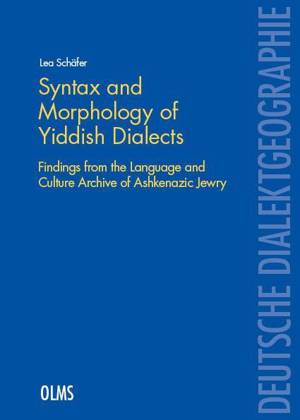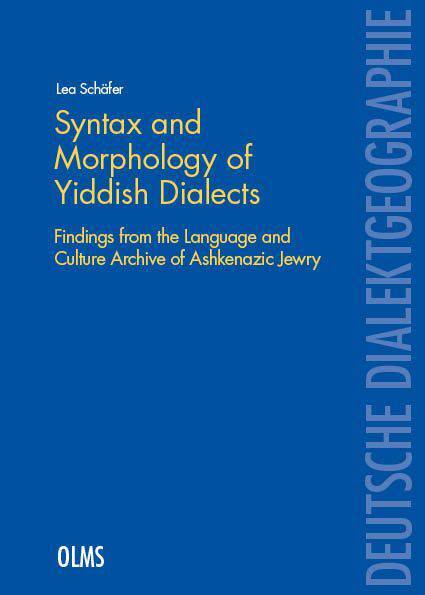
Je cadeautjes zeker op tijd in huis hebben voor de feestdagen? Kom langs in onze winkels en vind het perfecte geschenk!
- Afhalen na 1 uur in een winkel met voorraad
- Gratis thuislevering in België vanaf € 30
- Ruim aanbod met 7 miljoen producten
Je cadeautjes zeker op tijd in huis hebben voor de feestdagen? Kom langs in onze winkels en vind het perfecte geschenk!
- Afhalen na 1 uur in een winkel met voorraad
- Gratis thuislevering in België vanaf € 30
- Ruim aanbod met 7 miljoen producten
Zoeken
Syntax and Morphology of Yiddish Dialects
Findings from the Language and Culture Archive of Ashkenazic Jewry
Lea Schäfer
€ 89,45
+ 178 punten
Omschrijving
20th century fascism largely destroyed European Jewish cultures in their original form and distribution. Survivors brought their culture to new environments, where it was partly revitalized. Languages were also victim to this, or were abandoned in the course of assimilation and acculturation, or at least were strongly influenced by the different new contact situations. In the 1950s, when it was foreseeable that many survivors who had grown up in the old European territories would not pass on their mother tongue to their children and grandchildren, Uriel Weinreich recognized the necessity and opportunity to systematically document the language and culture of these speakers. Within the framework of his project "Language and Culture Archive of Ashkenazic Jewry" (LCAAJ), 18 interviewers collected interviews with almost 1,000 informants between 1959 and 1972 on the basis of an extensive questionnaire. The material collected within the framework of the LCAAJ is an inexhaustible fund and the best source we have on the historical Yiddish dialects of Central Europe. With the publication of the digitized copies of the written records (field notes) by Columbia Libraries in 2018 the raw data of the LCAAJ became available to the public. Between 2017 and 2022 the project "Syntax of Eastern Yiddish Dialects" (SEYD) analyzed these field notes with regard to syntactic and also morphological structures. The present volume presents a selection of these phenomena. The focus is on the empirical data as well as their embedding in a (micro)typological context. A large number of maps illustrate the spatial dimension of the grammatical variation given in the former European Yiddish dialects.
Specificaties
Betrokkenen
- Auteur(s):
- Uitgeverij:
Inhoud
- Aantal bladzijden:
- 478
- Taal:
- Engels
- Reeks:
- Reeksnummer:
- nr. 132
Eigenschappen
- Productcode (EAN):
- 9783487161822
- Uitvoering:
- Hardcover
- Afmetingen:
- 150 mm x 29 mm
- Gewicht:
- 977 g

Alleen bij Standaard Boekhandel
+ 178 punten op je klantenkaart van Standaard Boekhandel
Beoordelingen
We publiceren alleen reviews die voldoen aan de voorwaarden voor reviews. Bekijk onze voorwaarden voor reviews.









